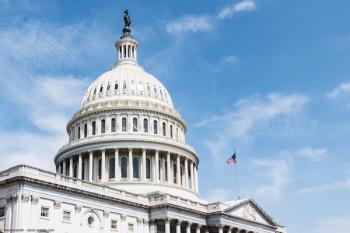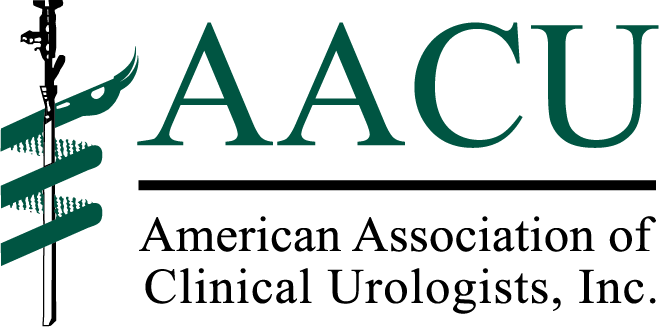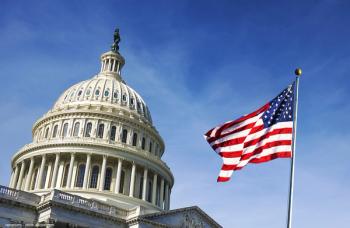
Scope of practice regulation: Time to put the genie back in the bottle

"In any examination of scope-of-practice issues in 2021, one cannot ignore the official 'rebranding' of PAs," writes Ross E. Weber of the AACU.
Based on a partnership with Urology Times®, articles from the American Association of Clinical Urologists (AACU) provide updates on legislative processes and issues affecting urologists. We welcome your comments and suggestions. Contact the AACU government affairs office at 847-517-1050 or info@aacuweb.org for more information.
The public health emergency induced by the COVID-19 pandemic necessitated changes to the health care delivery system that loosened up regulations to ensure adequate access to care. Many of these changes, particularly in the telehealth and scope-of-practice arenas, had been long sought by providers and patients. On the scope-of-practice front, regulators issued emergency rules to allow nurse practitioners and physician assistants to work without physician oversight and newly graduated medical students were thrown into practice under new non-physician provider licenses.
Today, as confirmed COVID-19 cases and hospitalizations decline in the United States, questions have arisen as to whether the genie needs to be placed back in the bottle.
The telehealth issues are largely being addressed collaboratively amongst providers, payers, patients, and policymakers. In stark contrast, non-physician providers are taking aggressive steps to institutionalize practices that will, in the long term, compromise patient safety.
Nurses, pharmacists, and physician assistants can provide important services that enhance access to care, particularly in underserved and rural areas. Nurse practitioners themselves use this argument when inciting legislators to allow them to practice without physician supervision. They insist that independent practice will mitigate medical deserts. There is mounting evidence, though, that despite these promises, nurse practitioners and others are not providing care in rural and other underserved areas. AMA data show that in states that have allowed NPs to practice independent of physician supervision, the non-physician providers have not chosen to locate or practice in underserved or rural areas.1 They are concentrated in the same areas as their physician counterparts.
Nonetheless, NPs are approaching a tipping point in their perilous pursuit of unsupervised practice. With 23 states granting full practice authority, they will soon be able to boast that half of all jurisdictions allow NPs to practice without physician supervision.
Legislative activity
Through the first half of 2021,
Arkansas, meanwhile, is 1 state were lawmakers have consistently compromised patient safety by expanding myriad providers’ authority. In 2019, they allowed optometrists to perform several laser surgical procedures. This year, new laws were enacted that:
• recognize APRNs as a primary care provider (HB 1254)
• remove supervision requirements for CNRAs (HB 1198)
• authorize pharmacy techs to administer vaccines and immunizations (HB 1135)
• grant certified nurse midwives "full practice authority" (HB 1215), and
• allow pharmacists to diagnose, treat, and provide medication for certain conditions (HB 1246).
In a vain attempt to close the barn door after the horse has bolted, the legislature also approved a measure to impose review requirements for future scope of practice expansions (HB 1180).
Pharmacists’ role
Arkansas is not the first state to grant pharmacists what is, essentially, a license to practice medicine. Reform in this area first began in 2009 when laws were expanded to allow pharmacists to deliver the H1N1 influenza vaccine, according to health care consultant Nick Diamond, as
Several months into the public health emergency, the US Department of Health and Human Services declared that pharmacists and pharmacy interns may administer COVID-19 testing, deliver recommended routine vaccinations to children aged 3 to 18 years, and order and deliver a COVID-19 vaccine to patients over the age of 3. The American Medical Association balked at this “end-run around scope-of-practice laws,” suggesting that the guidelines would cause children to skip regular examinations and comprehensive preventive care.4 AMA President Susan R. Bailey, MD, warned, “Pediatricians’ and family physicians’ practices are open and ready to provide the comprehensive preventive care parents and patients expect.”
In terms of state action, Florida serves as a case study. On March 11, 2020, a Tampa Bay Times headline provokingly asked “Who needs a doctor in coronavirus fight?” in an article detailing recent actions of the Florida Legislature to “empower” pharmacists.5 The innocuously named “Act Relating to the Practice of Pharmacy” had passed the House, the Senate, and was signed by the governor on a single day (HB 389). The new law separately addresses the provision of care for chronic and nonchronic conditions. For chronic conditions, a pharmacist may only treat the patients of an MD or DO with whom they have a collaborative agreement. The great worry in terms of chronic conditions, though, is the fact that the statute leaves it to the Board of Pharmacy to create the list of chronic conditions. Nonchronic conditions, on the other hand, are specifically listed in the new law. The concerning part of the nonchronic section is the fact that pharmacists can test, screen for, and treat anyone, provided they have an established written protocol with an MD or DO. In other words, they are not limited to testing/treating only the patients of physicians with whom they have an agreement.
PA’s misleading rebranding
In any examination of scope-of-practice issues in 2021, one cannot ignore the official “rebranding” of PAs. On May 24th, the American Academy of PAs (AAPA) House of Delegates passed a resolution affirming “physician associate” as the official title for the PA profession after “several years of study by an international marketing and communications firm.”6 Weeks later, in the AMA House of Delegates, the AACU co-sponsored a resolution insisting that the title “Physician” not be used in ways that have the potential to mislead patients.
The AMA said the name change is “clearly an attempt” to further move the PA profession toward independent practice.7 To that end, PAs are increasingly rejecting their customarily collaborative approach toward scope-of-practice issues. Instead, they are replicating nurse practitioners’ aggressive push to practice without physician supervision. Utah joined North Dakota earlier this year to essentially eliminate physician supervision (SB 27). A proposal in South Dakota to allow PAs to diagnose and treat patients and prescribe substances without any physician involvement was stopped in committee (HB 1163).
In speaking about PAs rebranding in the AMA House of Delegates, urologist Hans Arora, MD, painted an ominous picture, “Despite all the wins we tout, the state scope [of practice] bills that we beat back, the surveys we do that say the American people trust physicians, the truth is that the rank-and-file physicians—the people we claim to represent—believe that we're losing. We're losing the opportunity to prove that the independent practice of medicine falls under the sole purview of the physician."
References
1. O’Reilly KB. Independent practice for NPs fails to solve rural access problems. American Medical Association. August 17, 2020. Accessed July 6, 2021.
2. AMA advocacy 2020-2021 efforts. American Medical Association. June 8, 2021. Accessed July 6, 2021.
3. Mattina C. Keeping up with pharmacists’ changing scope of practice amid COVID-19. The American Journal of Managed Care®. October 21, 2020. Accessed July 6, 2021.
4. O’Reilly KB. COVID-19 doesn’t require end-run around scope-of-practice laws. American Medical Association. June 25, 2020. Accessed July 6, 2021.
5. Gross SJ.Who needs a doctor in coronavirus fight? Florida lawmakers empower pharmacists, some nurses. Tampa Bay Times. March 11, 2020. Accessed July 6, 2021.
6. AAPA House of Delegates votes to change profession title to physician associate. News release. American Academy of Physician Assistants. May 24, 2021. Accessed July 6, 2021.
7. Bailey SR. Statement on AAPA change of 'physician assistant’ title. American Medical Association. June 3, 2021. Accessed July 6, 2021.
Newsletter
Stay current with the latest urology news and practice-changing insights — sign up now for the essential updates every urologist needs.






